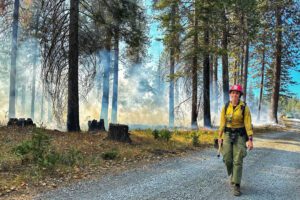How much does USAA homeowners insurance cost?
How much does USAA homeowners insurance cost?
USAA’s average annual homeowners insurance cost is $1,724, according to NerdWallet’s rate analysis. This is lower than the national average of $1,765 per year, but higher than the average rates of State Farm and Allstate, two large national competitors. Mar 10, 2022
Is USAA expensive?
USAA offers the cheapest average auto insurance rates among the nine insurers we included in our reviews, at an average rate of $875. The national average insurance rate is $1,321. According to study data, Geico is the second-cheapest insurer among insurance providers after USAA, at $1,100 per year. Mar 2, 2022
Can a spouse open an USAA account?
Generally, USAA membership is open to active, retired, and separated veterans with a discharge type of “Honorable” and “General Under Honorable Conditions” from the U.S. military and their eligible family members.
Is USAA in financial trouble?
USAA’s anti-money-laundering failures occurred from at least January 2016 until April 2021, FinCEN said. USAA failed to file at least 3,873 reports about suspicious activity by its customers, including some who used their personal accounts for apparent criminal activity, the agency said. Mar 17, 2022
Who owns USAA?
the Charles Schwab CorporationOn July 26, 2019, the Charles Schwab Corporation announced it would acquire USAA’s investment and brokerage accounts for $1.8 billion.
Does USAA cover busted pipes?
Property coverage: The insurance will compensate you for any personal property lost when a plumbing failure causes damage to your house. However, certain luxury items, such as watches, can only be protected up to $1,000 to $2,000 unless you add an optional rider to your policy. Dec 20, 2020
Does USAA cover hidden water damage?
In addition, notwithstanding the exclusion for constant repeated seepage or leakage of water or steam over a period of weeks, months, or years, USAA agrees to cover the cost of reasonable and necessary repair of direct physical damage to the dwelling or property caused by a covered water loss that is hidden or … Jun 26, 2017
Does USAA homeowners insurance cover termite damage?
USAA’s standard coverage excludes termite and insect damage. Mar 2, 2022
Has anyone been saved from a sinkhole?
A woman who wound up trapped in a sinkhole 40 feet deep in Florida was rescued by firefighters after spending nearly 11 hours stranded. Jan 8, 2021
What’s at the bottom of a sinkhole?
Sinkholes are common where the rock below the land surface is limestone, carbonate rock, salt beds, or rocks that can naturally be dissolved by groundwater circulating through them. As the rock dissolves, spaces and caverns develop underground.
What should you do after a sinkhole?
8 Actions To Take if You Believe You Have a Sinkhole Step #1: Keep Away. …Step #2: Leave Your Impacted House Immediately. …Step #3: Fence or Rope Off the Area. …Step #4: Contact Your Insurance Company. …Step #5: Consult with a Soil Testing Firm or Engineering Company. …Step #6: Monitor the Sinkhole for Signs of Growth. More items…
What happens if you fall down a sinkhole?
Take a look outside as well. When a sinkhole forms, water will start pooling on the ground. Trees and fence posts will start to tilt or fall over. The vegetation might wilt and die due to the sinkhole draining away water. Dec 1, 2021
What time of year do sinkholes occur?
Sinkholes can happen any time, but for a number of reasons they’re more prevalent from early spring until late summer — the unofficial Florida “sinkhole season.” Mar 27, 2014
How do humans accidentally create sinkholes?
Manmade sinkholes are created when city development compromises the structural integrity of underlying rock. Roads, buildings, and other types of construction may cause water to collect in certain areas and wash away the supporting rock layer (especially at low sea levels and after a heavy rainfall).
Who is responsible for sinkholes?
“The main trigger for sinkholes is water,” says Dr. Edmonds. “In 90% of sinkhole cases, water saturating the ground is the main trigger, known as Karst processes.” “Sinkholes happen when a layer of rock underneath the ground is dissolved by water. Nov 30, 2021


